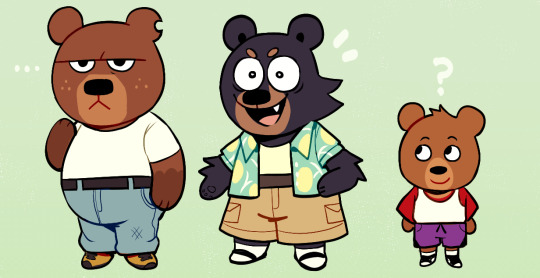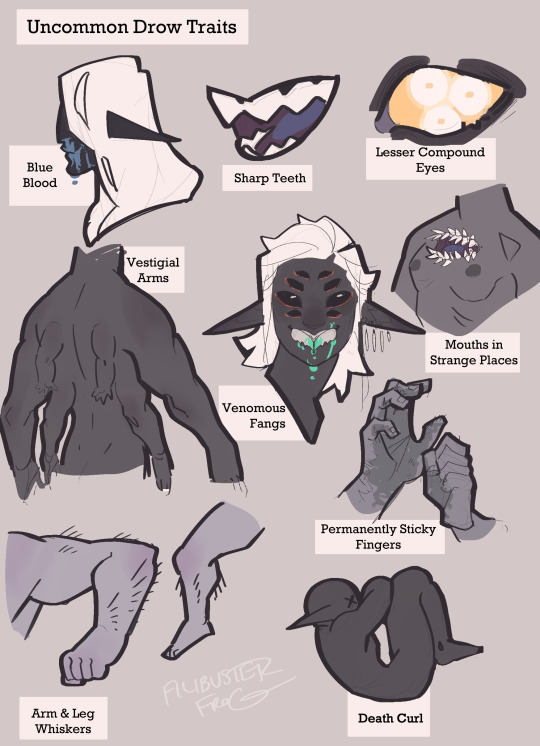Text
Sometimes you just make a chart bout like how some psychic powers trolls have overlap

8 notes
·
View notes
Text

Absolutely adore how the turtles just casually crawl all over Raph. Also sharp tooth Donnie supremacy 🙏
393 notes
·
View notes
Text
Things that I live for:
Raph carrying his brothers on his back like they're his babies.
348 notes
·
View notes
Text
ya know what
when (and i’m saying when, manifesting this shit) rottmnt gets renewed and the turtles eventually get to meet mona lisa, i want that bitch to SWOON at raph. fall in love at first sight. i want her (or him!!!) to show him just how lovable he is because that poor baby has been so deprived his whole life.
he needs to be courted! he needs to be chased! someone to pick him up and hold him like the teddy bear he is!! he deserves it!!
493 notes
·
View notes
Text
I have offended God and mankind because my work did not reach the quality it should have.
- Leonardo da Vinci
5 notes
·
View notes
Text

Congratulations to @reimenaashelyee and @pepurika for their placement on The AV Club's Best Comics of 2021 list!
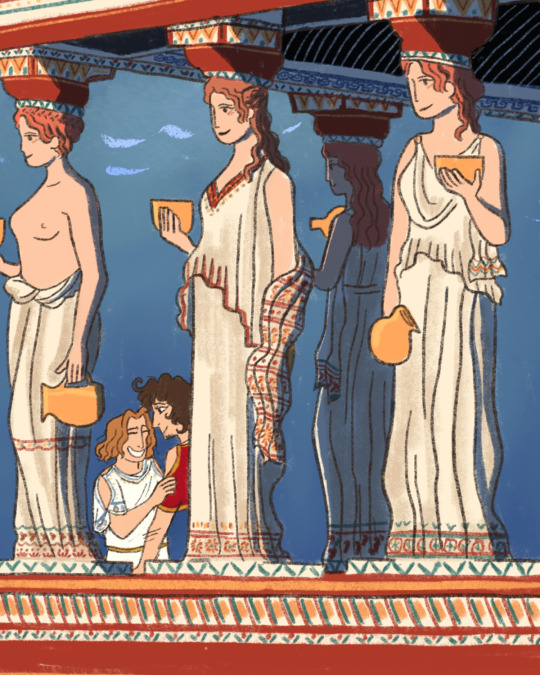
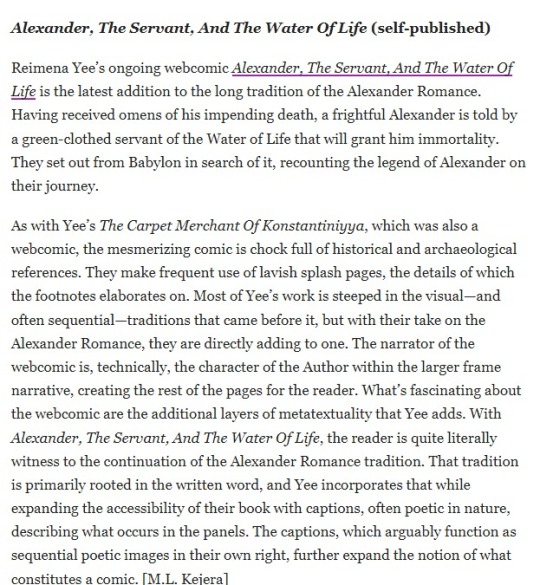
"...the mesmerizing comic is chock full of historical and archaeological references. [...] With Alexander, The Servant, And The Water Of Life, the reader is quite literally witness to the continuation of the Alexander Romance tradition."
Read the comic for free: https://alexanderromance.com
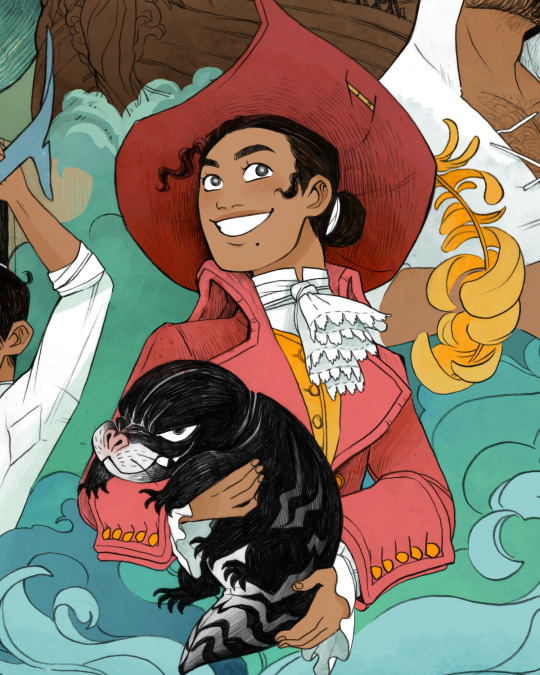

"There are all sorts of delightful hijinks, and Nordlund has a particular skill with comedic timing and expressive faces that bring each character to life."
Read Tiger, Tiger for free here: https://tigertigercomic.com
642 notes
·
View notes
Text
straight people do not understand james dean and they never will.. he is not your boomer leather jacket romantisization of the good ole 50s greaser Real Man taylor swift diner milkshake aesthetic hotrod he is literally the world‘s saddest, most miserable little lgbt man..he loved his mom and he loved ballet. he loved poetry. he met a girl who lost a leg in a motorcycle accident who missed riding and gave her a lift on his bike just so she could experience it again. he was thin and sickly as a kid. he felt unloved by his father. he was a sugar baby for dozens of important men in hollywood. he loved the little prince. he was terrified of abandonment. he was bipolar. he stole his boyfriends’ coats. he dodged the draft by openly telling the army he was a practicing homosexual. he was obsessed with bullfighting. he didnt use electricity on fridays because he thought candlelight was relaxing and fun. he adored judy garland. he called all the most important women in his life “mom.” he might’ve fucked walt disney. he had to train himself not to speak in a flat indiana drawl. all his friends called him jimmy, jimbo, and william bast called him “deaner.” he had terrible posture. he was incredibly nearsighted. he had a kitten named marcus, named after the uncle who raised him, that he gave away out of fear he’d not be able to take care of it properly
10K notes
·
View notes
Note
Do you have any advice for pointers or punching up dialogue? I've often gotten notes that characters aren't distinct enough.
One piece of advice? In dialogue, the person hearing a line is just as important as the person speaking the line. When writing fiction, you need to justify why Character A is offering information to Character B, using both A and B. The more personal the information is, the more justification you need.
In psychology, there's a thing called Social Penetration Theory. It says that, the less we know and/or trust a person, the less we share about ourselves, and vice versa:
When talking to a stranger, we either stick to social scripts ("How are you?"/ "I'm fine"), or we use conventional conversation topics ("Hate this weather."/ "Same here!").
When talking to an acquaintance, the topics get both broader ("Where'd you get that tie?"/ "Macy's!") and somewhat deeper ("You hanging in there?"/ "Stressed, but still going!") but not too broad and not too deep.
Friendships are marked by having broad shared topics to the point of in-jokes ("Last episode was plusungood, yeah?"/ "Try double-plusungood!") and conversations around real vulnerability ("How you doing?"/ "Today sucks").
It's only when you get to the really intimate relationships — best friendships, long romances, close siblinghood — that you start to see the heavy stuff come out ("I wish my mom supported me more"/ "Yeah, you deserve it").
Note 1: the levels are cumulative — close siblings can talk about almost anything from the weather to their deepest fears. Note 2: sometimes people do violate these norms (e.g. through telling strangers about their romantic troubles), but most listeners find such violations very off-putting.
Anyway, the common error in fiction is the California Conversation: when Character A starts telling Character B on their first date that deep down he feels he'll never be worthy of his father's love. The joke is that the California Conversation only happens in movies because maybe that's how Hollywood people talk to each other, but out in the real world people have a sense of boundaries. If A tells B all that father-stuff after knowing B for an hour, then the audience is going to conclude that a) A's father isn't that important to him, b) A is an awkward over-sharer, or c) this dialogue is weird and unrealistic.
One example of dialogue done wrong: the novel Throne of Glass. The protagonist Celaena is described as tough and aloof, but in an early scene she starts telling a guard she met that same day about how heartbroken she felt to have her hair cut off when she was sent to prison. There are several things that feel off about this moment. We humans do not, as a rule, tell near-strangers about things that break our hearts. A hardened assassin trained in secrecy seems especially unlikely to share like this. And a guard who is holding said assassin against her will seems like an especially unlikely target.
This kind of disclosure can come off like info-dumping: the author wants us to know the hair is important, so the character blurts it out. It can come off like social incompetence: maybe Celaena doesn't understand boundaries, which would be an interesting flaw if it fit with her other characterization. It can come off as implying that the subject isn't important, because if it was then you wouldn't tell a guard about it during your first meeting. Not ideal.
One example of dialogue done right: the novel What Could Be Saved. It's about a brother and sister rebuilding their relationship as adults, after the brother disappeared as a child 50 years ago. The brother's deepest disclosure [SPOILERS] is that, after he was kidnapped by Thai insurgents trying to get leverage on their American spy father, his captors told him that his family refused to ransom him. Being 11, he believed this and chose to run away rather than return home when he did get free; it was only much later he began to question that story enough to try and contact his family [SPOILERS END]. But it takes the entire friggin novel for the brother to build up to telling his sister that. Over the plot, the siblings go from stilted small-talk, to casual chats, to half-remembered in-jokes, to serious conversations, before finally feeling comfortable enough to edge their way up to the reason the brother never returned after his escape. That disclosure, when it finally comes, is a gut-punch. An earned gut-punch. A gut-punch that caused me to tear up, because I was on the entire journey it took to get these characters here.
If you don't feel like spending an entire novel building up to one conversation, simply establish who the characters are to each other before they start talking. A classic example is the story "Hills Like White Elephants." It's a stifling near-horror story about a man pressuring his girlfriend into an abortion, only no one ever uses the words "abortion" or "pregnancy." Not only does the couple's growing distance come through in their inability to discuss the issue directly ("'It's not really an operation at all,' the man said... 'It's just to let the air in'") but we see the woman repeatedly respond to her partner's assurances with "They're lovely hills... look like white elephants" or "Can we have another beer?". She's losing trust in him, so she's resorting back to small talk. Her discomfort is palpable, even though verbally she agrees with her partner. We learn a lot about him, and about her, through what they don't say to each other.
One last example: FBI tapes. NYTimes has an excellent set from January 6 rioters, and there are a lot of other transcripts around. They're interesting because they involve experts trying to get personal disclosures out of strangers, which ends up being the verbal equivalent of trying to pin down a drop of mercury. In the January 6 set, there is video evidence of the crimes, but there's still a ton of verbal dodging and distracting and soft-pedaling in the face of undeniable guilt. Note what words real people use when making real disclosures that personal, and note what they don't say. That's how dialogue works, and that's how you can inject characterization into your dialogue.
2K notes
·
View notes
Text
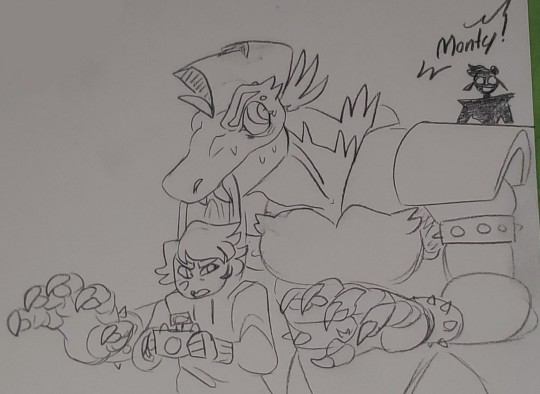
Tbh Monty being Gregory's protector would be fun with my AU. He has to use his hands, so he gets Gregory a sweater and just carries him around with his mouth since he's too big for Gregory to hang onto
881 notes
·
View notes
Text
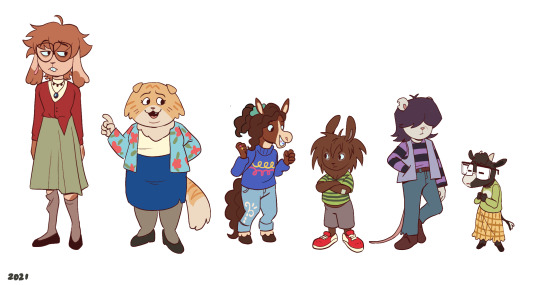

Salmon Road Designs for the School Bunch + An Updated Clementine Ref
(In order: Sibyl, Ms.Tulip, Justine, Rocky, Nat and Olive)
130 notes
·
View notes
Text

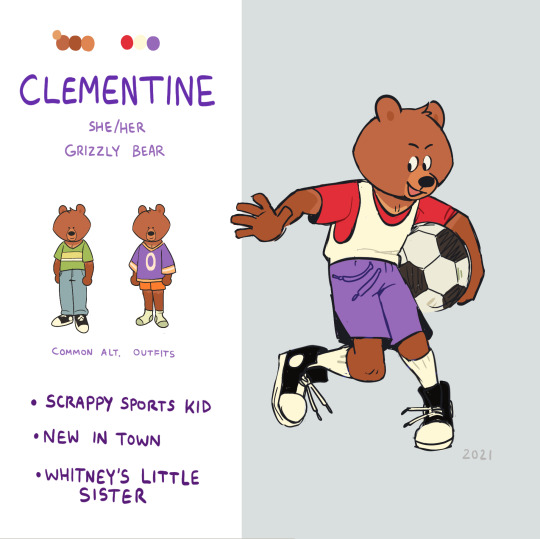

File 1: Introductions
I wanted to do a quick refresher on the main trio of my project, Salmon Road!
Salmon Road follows Whitney as she is given guardianship of her kid sister, Clementine.
Together they struggle to navigate the change in lifestyle and Clementine quickly comes to the conclusion that this town is one of the most boring places she's visited in her entire life.
Mundane atmospheres aside, there is someone she comes across that catches her interest. Joan is known all over as the local eccentric, her dicy public reputation preceding her due to her “troublemaking” behavior and belief in the supernatural. Despite being told not to approach her by Whitney, Clementine starts to follow Joan around town on her adventures for entertainment’s sake.
4K notes
·
View notes
Photo
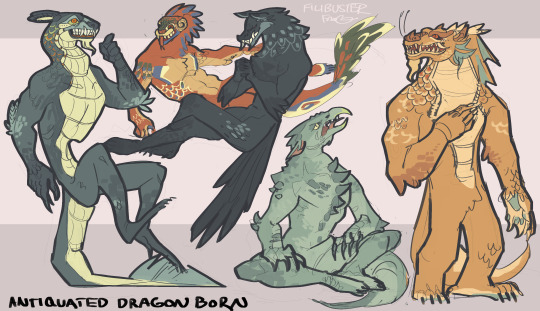
strange dragonborn based on some old statues of dragons
4K notes
·
View notes
Text
if you’re abled, please watch this
Transcript:
A tiktok reply to a comment that says, “an ambulatory wheelchair user? 😂😂😂”
The girl says, “I wasn’t gonna reply to this comment at first, but I decided I should make a video on it, because recently, I’ve gotten so many ableist comments about being an ambulatory wheelchair user, and I really wanted to address it. There are quite literally hundreds of reasons why someone could use a wheelchair. And actually, the majority of wheelchair users are not paralyzed. Over 60 % of wheelchair users are not paralyzed. They use it for some other disability. So just because you see someone who uses a wheelchair get up and walk for a few steps does not mean that they don’t need their wheelchair.
I use a wheelchair for like, ten different reasons. First of all, I have a condition called hypermobility spectrum disorder, which is very similar to Ehlers-Danlos Syndrome, for people who know about that, which basically means that all the connective tissue in my body is extremely stretchy and loose. This means that all of my joints are extremely hyper-mobile and they dislocate very easily. My hips sublux, or partially dislocate, almost every single time I try to take a step. It’s extremely painful, and it literally causes damage to my hip joints. My connective tissue disorder also caused me to develop a condition called POTS, or postural orthostatic tachycardia syndrome. This makes me pass out basically any time I stand up for more than, like, 20 seconds. So it’s not really safe, because I’ve gotten concussions from it before from passing out and hitting my head.
POTS and hyper-mobility spectrum disorder also come with extreme fatigue, and I don’t mean being tired, I mean fatigue. My muscles physically get exhausted much easier than other people’s. And, to top it off, I have a neurological condition called functional neurological disorder. Basically, it makes my legs go numb, it causes me to have extreme muscle weakness in my calves and thighs, and some days I can’t really move them that well.
Disabled people and ambulatory wheelchair users do not owe you an explanation, and you need to understand that. I am sharing this because I feel comfortable with it and because I want to, I want to educate this person. But you have to understand that not every person is like that, and quite frankly, it’s none of your business. Thank you.”
End transcript.
34K notes
·
View notes



